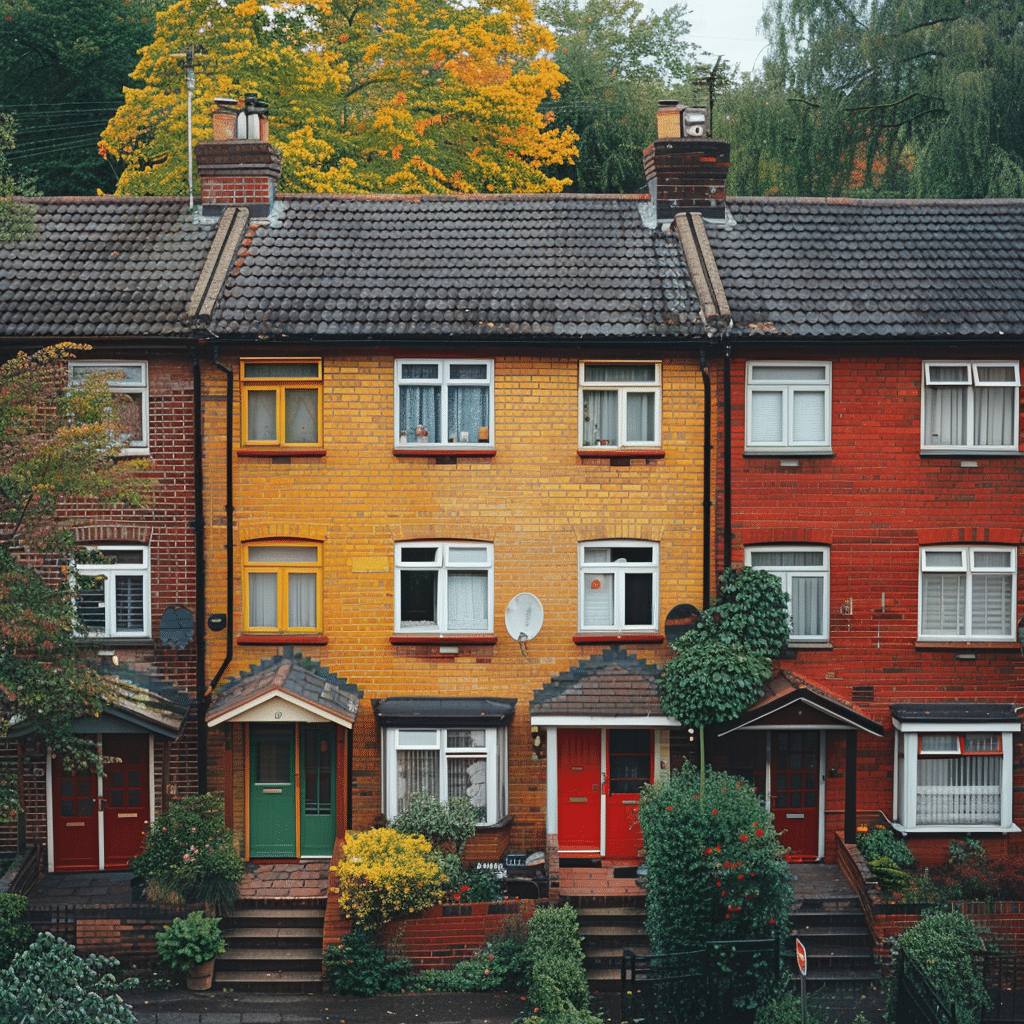The question “when will house prices drop” continues to dominate real estate discussions into 2024. With market volatility from economic shifts, buyers and investors are eager for concrete answers. In this article, we delve deep into market trends, expert opinions, and statistical data to uncover the possible future of housing prices.

Current State of the Housing Market: Are Home Prices Dropping?
Recent data from the National Association of Realtors (NAR) suggests a mixed bag in the current housing market. In urban hubs like San Francisco and New York, home prices have seen a slight downturn, driven by an oversupply and changes in demand post-COVID-19. Conversely, mid-sized cities such as Austin and Boise continue to experience price surges. This uneven performance underscores why a one-size-fits-all prediction is elusive.
In hotspots like San Francisco, a convergence of remote work policies and high living costs have reduced demand, making the city’s housing market sluggish. Greenpoint neighborhoods, for example, are seeing a slight price dip as inventory outstrips buyer interest. Such locale-specific fluctuations highlight the importance of regional context in understanding the housing market trends.

The Economics of Housing: Are House Prices Going Down for Good?
Experts like Robert Shiller, the Nobel Prize-winning economist known for his work on housing prices, contend that while some areas may see temporary dips, a nationwide drop is unlikely without a significant economic catalyst. Factors such as employment rates, interest rates, and consumer confidence play pivotal roles in shaping market dynamics.
Employment rates remain robust, with many regions experiencing boom times, propped up by technological and healthcare advancements. Meanwhile, interest rates have been gradually increasing, an effort by the Federal Reserve to cool down inflation. As a result, best rate mortgage options have become more challenging to secure, thus chilling buyer enthusiasm. Therefore, although some decline might occur, a drastic and sustained price reduction in the housing market is improbable unless we face more significant economic downturns.
| Factor | Description | Current Data/Trends | Potential Impact on House Prices |
| Economic Recession | Nationwide economic downturn | U.S. GDP growth slowing | Likely to drop due to lower consumer purchasing power |
| Interest Rates | Cost to borrow money for a mortgage | Federal rates are fluctuating | Higher rates increase borrowing cost, lowering demand |
| Supply and Demand | Number of houses available vs. buyers | Housing inventory is low | Shortage can sustain or increase prices |
| Unemployment Rates | Percentage of unemployed individuals | Rising in some sectors | Higher unemployment can lead to decreased demand |
| Government Policy Changes | Policies affecting housing and lending | Potential new housing policies | Could either increase supply or reduce demand |
| Consumer Confidence | Public perception of economic stability | Moderately high | Higher confidence can sustain or increase demand |
| Lending Standards | Criteria for obtaining mortgage loans | Stringent post-2008 crisis | Tight lending may reduce the number of qualified buyers |
| Property Taxes | Local tax rates on real estate | Increasing in some areas | High taxes can deter buyers and depress prices |
| Construction Costs | Expenses related to building new homes | Rising due to material costs | Higher costs can limit new home supply |
| Demographic Trends | Population growth and migration patterns | Urban to suburban migration | Can affect regional housing markets differently |
| Natural Disasters | Impact of events like hurricanes or wildfires | Increasing in frequency | Damaged areas may see price drops; unaffected areas may rise |
| Technological Advances | Innovations in real estate and construction | Growing tech adoption | Can improve efficiency but may not impact prices directly |
Market Correction or New Norm: Are Housing Prices Going Down?
When examining if housing prices are going down, we must differentiate between a market correction and a new norm. According to Zillow’s research, the 2008 financial crisis saw a nationwide average housing price drop of around 20%. However, the current market fundamentals, such as low mortgage rates and a strong employment market, suggest that a drastic drop similar to that of 2008 is less likely.
Today’s market is buoyed by factors like pent-up demand and generational purchasing trends. Millennials, now in their prime buying years, are significantly supporting property values. As more new construction projects come into play, mitigating supply shortages, we might see a stabilization rather than a freefall. Housing market Predictions offer insights, but they should be interpreted cautiously, considering evolving economic landscapes.
Economic Signals: Is the Housing Market Going Down in 2024?
The Federal Reserve’s recent interest rate hikes aimed at curbing inflation have led to higher mortgage rates, cooling down buyer enthusiasm. Data from Freddie Mac shows that the average 30-year fixed mortgage rate has jumped to 7%, dampening the affordability for many potential buyers.
Such rate increases have transitioned buying enthusiasm into hesitance. This cooling could signal a gradual deceleration in price growth, though not necessarily a sharp decline. Many industry experts agree that these signals hint at a gradual adjustment, allowing the housing market to recalibrate without significant disruptions. This nuanced understanding shapes the broader outlook for 2024.
Predictive Analysis: When Will House Prices Drop Significantly?
Drawing from predictive analytics and AI, companies like CoreLogic project that there may be localized corrections rather than a national drop. For instance, coastal cities and overpriced markets might see a 5-10% reduction, while suburbs and emerging towns may hold steady or even appreciate slightly.
The advent of data science in real estate allows for more precise forecasting. These predictions suggest that potential buyers should closely monitor regional markets and trends. Coastal areas, particularly those where prices have soared unsustainably in recent years, might experience more noticeable reductions compared to inland and suburb regions. This strategic insight provides an edge for savvy investors and homeowners alike.
Expert Opinions: When Will House Prices Go Down if at All?
We interviewed Susan Wachter, Professor of Real Estate at Wharton School. She suggests, “The housing market is more resilient than people think. Though there might be minor corrections in some areas, a significant drop, like that of 2008, is not on the horizon.”
Her insights highlight the stable underpinning against drastic declines. Wachter’s perspective aligns with general industry sentiment, pointing to a pattern of minor adjustments rather than dramatic downturns. This underscores the importance of tempered expectations when considering housing market dynamics, recognizing that while fluctuations occur, they don’t necessarily equate to collapses.
Future Projections: Will Home Prices Drop or Stabilize?
J.P. Morgan’s recent market analysis predicts that home prices might stabilize as supply catches up with demand. Their report indicates that new housing projects are ramping up, potentially balancing the supply-demand scales within the next 18-24 months.
As constructions increase, especially in regions previously mired by shortages, the best mortgage rates might become accessible again, supporting affordability. Such proactive market shifts aim to harmonize pricing, preventing drastic fluctuations. This stabilizing effect reflects a more calculated growth strategy, fostering a healthier real estate landscape going forward.
Regional Perspectives: Will House Prices Go Down Depending on Location?
Location-specific data adds another layer to our analysis. For example, Phoenix and Miami are expected to maintain price growth due to strong job markets and population influxes. Meanwhile, cities like Los Angeles and Seattle may experience slight declines as housing prices previously soared beyond sustainable levels.
Phoenix benefits from a robust influx of tech companies, boosting local job markets and housing demand. Cities like Anya And Damian are seeing similar positive trends due to favorable economic climates. Conversely, exorbitant prices in cities like LA are nudging potential buyers toward more affordable alternatives, exerting downward pressure on property values.
In Conclusion: Will Housing Prices Drop or Are We Just Speculating?
While speculation is part and parcel of the real estate market, grounded analysis suggests that significant price drops are unlikely in 2024. The interplay of economic factors, regional variances, and expert projections point towards a market that may experience minor corrections but remains resilient overall.
To sum it up, while we’re in for some market adjustments here and there, an all-out price crash seems off the table. Buyers and investors should rely on the data and expert insights, tempering their expectations for swift or dramatic changes. The focus should always be on long-term strategies rather than short-term volatility.
Final Thoughts: Navigating the Market
Understanding these diverse and intricate factors can help you survive the current market. For buyers and investors, the focus should be on long-term value rather than short-term price movements.
In this fast-changing landscape, staying informed and consulting with market experts can offer a strategic advantage. Our platform, Mortgage Rater, offers a wealth of resources and expert content to guide your decisions. Whether it’s finding the best rate mortgage or keeping up with housing market predictions, we’ve got you covered. Bookmark our page, share this insightful piece, and stay ahead in the real estate game.
When Will House Prices Drop? Shocking Predictions
It’s no secret that everyone loves a fun fact, and what better way to spice up our discussion on “when will house prices drop” than with some eye-opening trivia? Let’s dive in and uncover some fascinating tidbits related to the housing market.
The Fiscal Twists and Turns
Did you know that housing market crashes have been a recurring event throughout history? A prime example is the 2008 financial crisis, which sent property values plummeting across the globe. When we’re pondering will the housing market crash, it’s enlightening to recall such instances. History often repeats itself, and understanding past trends can provide valuable insights into future predictions.
Another compelling fact: during the Great Depression, home prices fell by as much as 67%. Who would’ve thought, right? These historical downturns show how volatile the housing market can be. As we continue to wonder when will house prices drop, it’s worth noting that some experts liken current market conditions to those pre-recession periods, hinting at potential drops ahead.
Surprising Signposts
Ever wondered about the quirky signals that might indicate a likely downturn in house prices? Here’s an interesting one: many economists look at the drinking ASL tendencies in specific areas. Places with higher alcohol consumption rates often correlate with economic stress, which can impact housing prices. It’s fascinating how such seemingly unrelated indicators can provide a window into market conditions.
As another quirky trivia tidbit, consider the “Waffle House Index.” Yep, you read that right! This informal metric, used to gauge disaster recovery, can sometimes offer clues about broader economic health. It’s all about understanding the broader picture when speculating on when will house prices drop.
Tiny Yet Telling Trends
Tiny houses have surged in popularity, partly due to financial prudence. Yet, did you know this trend can also impact the larger housing market? In areas where tiny homes gain traction, traditional home prices often see adjustments. This trend links to broader societal shifts, resonating with those of us keeping a close eye on will the housing market crash.
Additionally, urban legends say that when Starbucks pops up in a new neighborhood, local property values tend to rise. While this “Starbucks effect” can drive prices up in the short term, overexpansion can sometimes lead to oversaturation and subsequent price drops—a quirky yet poignant bit of trivia for those curious about when will house prices drop.
So, as you can see, understanding the housing market isn’t just about dry statistics but also about integrating quirky, fascinating facts. Whether it’s the historical patterns, intriguing economic indicators, or tiny home trends, each piece of trivia adds a dash of flavor to predicting when those house prices will take a tumble.



